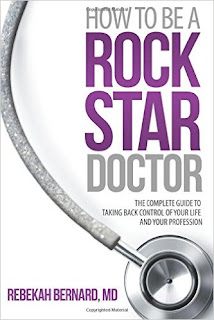Self-publishing Non-fiction
Most self-published authors write fiction. That’s a fact. In writing clubs I attend you almost never
hear anyone reading their non-fiction excerpts.
It’s always fiction -- thrillers or mysteries or romance or war
stories. There are two reasons for this.
1) You don’t need to be an expert on a subject to
write fiction. Anyone can do it. When
you need to provide factual information on a topic you know nothing about, you
can just do a quick internet search. Paradoxically,
while it is much easier to come up with ideas for fiction, the craft involved in writing a novel is
more complex than for a non-fiction book.
(In most of my career I did only non-fiction (http://www.lakesidepress.com/books.html). Until I
started writing fiction a few years ago I was clueless about things like “Point
of View” and “Show don’t tell.”)2) Most non-fiction is aimed at niche markets and not the general public, so your potential sales will be limited (compared to any popular fiction book). Everyone dreams of writing a fictional best-seller. Few people dream of writing a non-fiction best seller. As example, a few years ago I wrote a book on medical aspects of scuba diving. If you’re not into scuba you’re not going to read it – ever.
***
If you do have expertise in a certain area then by
all means try your hand at non-fiction. Here is what
Joel Friedlander writes, in his daily newsletter, about self-publishing
non-fiction. http://www.thebookdesigner.com
“Figure
out who you’re publishing the book for…My first tip is to be specific--the more
specific you can be in describing your typical or ideal reader, the easier it
will be to locate them and understand what they need from you. Most self-published [non-fiction] books are
on niche subjects, and that makes good sense. A niche subject is by definition
one that isn’t served by mass-market publishing.”
Friedlander then goes on to give specific
examples.
“In each case, these authors would have no trouble
telling you in an instant who they are publishing for, and why. Can you do the same? If you're writing nonfiction,
it's absolutely critical to be able to answer this question. And the more
specific you can be, the more easily you'll find your readers.”
***
My self-published book, We Can’t Kill Your Mother! And Other Stories of Intensive Care, is a non-fiction account of actual patients in the ICU. I changed all the names of course, but the
stories and medical conditions are real.
My intended audience: that part
of the general public who may be interested in patient stories.

***
There is a discussion group for physicians, called Sermo, in which physicians can comment on anything that might interest their colleagues. Recently two physicians posted their self-publishing efforts. One of them, Dr. Kennedy, is a surgeon who has self-published two books, the second one just last month.


About his first book, A Brief History of Disease, Science &
Medicine (2004), he writes: “The
medical history book began about 15 years ago as a series of lectures for the
students on medical history. Eventually I decided to turn it into a book. Yale
U Press looked at it and their readers objected that I was not a PhD in history
so they passed it up. That book has sold around 20,000 copies so far and sells
about 20 to 50 a month on Amazon now. It was adopted as a textbook at several
places, including Johns Hopkins and UCLA. Had Yale done it, they would have
overpriced it and it would have sold about 1,000.”
He set up his own publishing company (Asklepiad Press) for A Brief History, which also produced his 2nd book, 50 Years in Medicine: War Stories (2015)
***
Another physician recently
self-published a book aimed at practicing doctors, and chose a brilliant
title: How to Be a Rock Star Doctor - the Complete Guide to Taking
Back Control of Your Life and Your Profession

On the Sermo discussion site Dr.
Bernard wrote: “The book is geared
towards newer docs with advice on how to “work-around” some of the gazillion
challenges that we face in medicine, especially in primary care.” She has clearly identified her niche
market.
***
One of the more successful self-publishing efforts by a physician is White Coat Investor, by Dr. James Dahle. An emergency medicine physician, Dr. Dahle also keeps up an active web site, http://whitecoatinvestor.com/, where he offers lots of useful investing advice. He set up his own company to self-publish White Coat Investor.

The listing on amazon.com gives an interesting tidbit about his start as a writer.
“James M. Dahle,
MD, when not out skiing, mountain biking, or rock climbing with his wife and
three children, practices emergency medicine in suburban Utah. As a medical
resident, he grew tired of being ripped off by unscrupulous financial
professionals including mutual fund salesmen, insurance agents, realtors,
mortgage lenders, and stock brokers and began educating himself on the ins and
outs of personal finance and investing. In 2011, he started The White Coat
Investor, now the most widely read, physician-specific personal finance and
investing blog in the world, with nearly 200,000 page views per month. His
writing helps doctors avoid the mistakes he made and get a “fair shake” on Wall
Street.”
***
So if you have become knowledgeable or expert in some area – doesn’t matter what it is – consider writing a non-fiction book. And then self-publish it. Here are 3 web sites that tell more of what you need to know, plus the link to a Kindle book aimed at non-fiction self-publishers.
http://www.selfpublishingadvice.org/the-advantages-of-indie-publishing-for-non-fiction/
http://www.thecreativepenn.com/2014/10/14/non-fiction-success/
http://briancartergroup.com/thought-leadership/non-fiction-authors-should-you-self-publish-or-go-traditional/?hvid=47yXr
http://www.amazon.com/Success-Writing-Self-Publishing-Non-Fiction-eBooks-ebook/dp/B007B4X7DA


